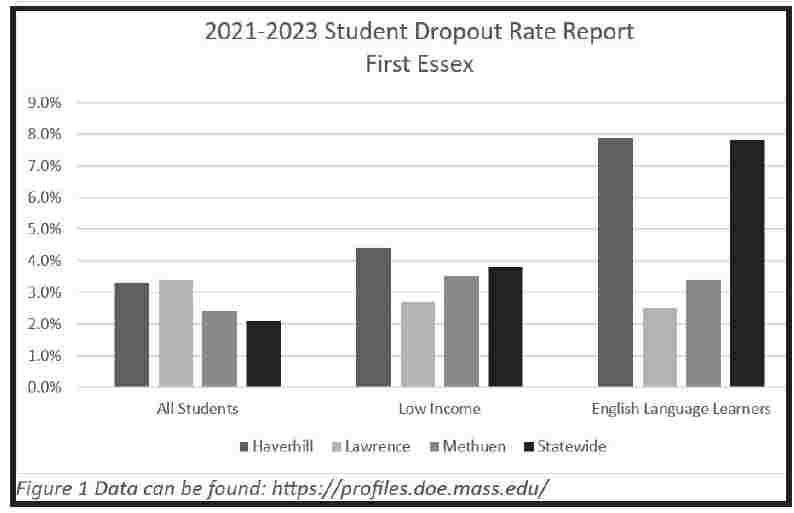The Crucial Need to Increase the Dropout Age
State Senator Pavel Payano – Nov. 2023
As a State Senator, my commitment to improving education in Massachusetts is unwavering. Senate bill 341, “An Act Relative to Dropout Prevention and Student Recovery,” a pivotal piece of legislation, which I sponsored, aims at reshaping the educational landscape for our students.
The primary goal of this bill is to elevate the age at which a student is permitted to leave school to 18, and to introduce a pilot program targeted at districts with dropout rates exceeding the state average. The vision behind this legislation is simple yet profound: ensuring that all our students have the tools and opportunities to earn their high school diploma.
Our state has witnessed considerable progress in reducing the dropout rate over the past decade. However, we must acknowledge that certain groups of students still face alarmingly high dropout rates. Data compiled by the Department of Elementary and Secondary Education (DESE) for the 2021-2022 school year uncovered troubling statistics. It revealed that 2.8% of Black and 4.3% of Hispanic or Latino students dropped out of high school, significantly higher than the statewide rate of 2.1%.
The discrepancy becomes even more glaring when we look at Limited English Proficiency Learners (LEP), whose dropout rate stands at a staggering 7.8%, almost four times the statewide average. We must take concrete steps to ensure that every student, regardless of their racial, socioeconomic, or cultural background, is given the support and resources necessary to earn their high school diploma.
One crucial aspect of this legislation is raising the dropout age to 18. Our school districts should not be giving up on students during early high school years when students typically reach the age of 16. By extending the mandatory school attendance age to 18, we are sending a clear message that we believe in every student’s potential and that we are committed to supporting them until they successfully complete their high school education.
But this bill is not just about raising the dropout age; it also introduces a pilot grant program designed to provide districts with the resources they need to keep students in school. This program focuses on districts with dropout rates higher than the statewide average, aiming to target students who have already dropped out or are at risk of doing so. It stipulates that the program must employ at least one of four methods known to be effective in helping students stay in school.
These methods encompass alternative education strategies, graduation coaches, dropout outreach and recovery programs, and expectant and parenting student support. Through these approaches, we can better engage students, address their unique needs, and provide the support required to guide them towards their high school diploma.
Accountability is central to this bill. The Department of Elementary and Secondary Education (DESE) will be responsible for leading an annual review of the pilot program, ensuring that participating districts are making the progress we desire. Additionally, DESE will submit a final report after the three-year pilot period, featuring a comprehensive analysis of all relevant data. This analysis will help us determine the effectiveness of the program and present specific legislative recommendations.
Ultimately, it will guide us in deciding whether to expand, maintain, or discontinue the program.
In a world that thrives on innovation and adaptability, the future belongs to those who have the skills, determination, and opportunity to pursue their dreams. Success knows no bounds, and it doesn’t hinge on a predetermined path, such as a traditional college education. The key is to equip every student with the foundational skills, resources, and support needed to unlock their full potential.
This legislation is a crucial step toward that goal, and by raising the dropout age and implementing innovative programs, we can ensure that all students have the opportunities they need to build a successful future. ◊

